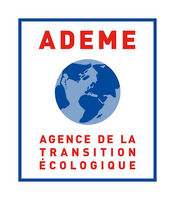Search eceee proceedings
From Kyoto to Paris and Glasgow: overview of international climate agreements and regimes, their limitations, and the role of energy efficiency and sufficiency
Panel: 3. Policy, finance and governance
This is a peer-reviewed paper.
Author:
Paolo Bertoldi, European Commission, Joint Research Centre (JRC) Ispra, Italy
Abstract
In 1988 the UN General Assembly defined climate change a “common concern of mankind”. In 1990, the IPCC’s first Assessment Report (AR) highlighted the impact of climate change and the need to have an international coordinated response. The United Nations Conference on Environment and Development (UNCED) held in Rio de Janeiro in 1992 established the United Nations Framework Convention on Climate Change UNFCC), and the subsequent regular Conferences of the Parties (COP). A major step forward in international climate agreements was Kyoto Protocol in 1997. The Protocol was based on the principle of "Common but Differentiated Responsibilities", with obligations only for developed countries. A rapid increase in emissions by fast growing countries, showed the limitations of the Kyoto Protocol. The Paris Agreement reached at COP 21 2015 is a major step forward in climate change negotiation with global engagement to limit global warming to well below 2 C. The Paris Agreement departs from the top-down approach of the Kyoto Protocol; it adopts a bottom up approach in which each country determines its contribution to reach the global target, through national determined contributions (NDCs), which shall be revised with the view of increasing the ambition every 5 years. Other important elements of the Paris Agreement are: the increased role of climate finance for developed countries, the role of non-state actors, and the “rule book” for GHG monitoring. Despite the Paris Agreement, the global emissions have continued to increase till 2020 and the current set of NDCs are not compatible with a 2C pathway.
The paper presents the key elements of the international climate agreements and their limitations, the lack of ambition of NDCs, the current conflicts and the latest agreement reached in Glasgow in 2021. Particular focus is on the role of energy efficiency and energy demand options including sufficiency in the global effort for GHG reduction and temperature stabilisation at 1.5 C.
ERRATA
Title has been corrected.
Downloads
Download this presentation as pdf: 3-284-22_Bertoldi_pres.pdf
Download this paper as pdf: 3-284-22_Bertoldi_REV.pdf
Panels of
1. Dynamics of consumption: less is more?
2. Efficiency and beyond: innovative energy demand policies
3. Policy, finance and governance
4. Monitoring and evaluation for a wise, just and inclusive transition
5. Towards sustainable and resilient communities
6. Energy-efficient and low-carbon mobility for all
7. Policies and programmes for better buildings
8. Innovations in products, systems and building technologies



























